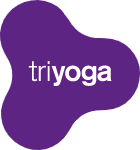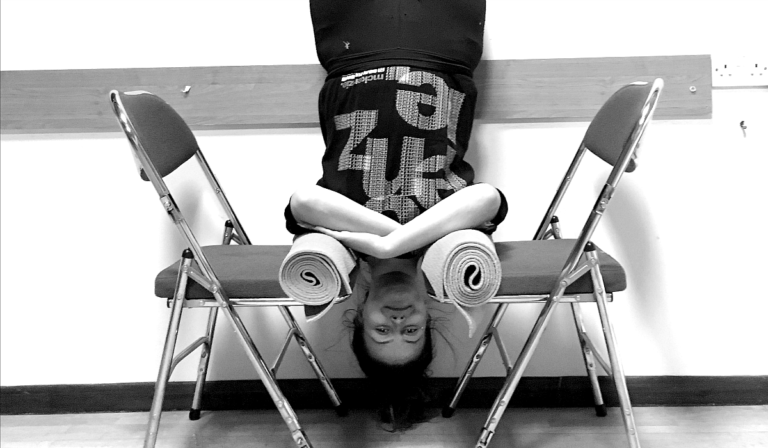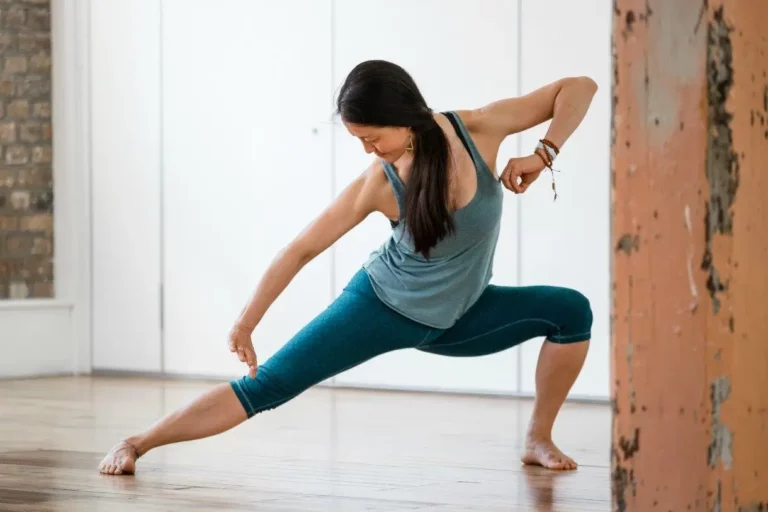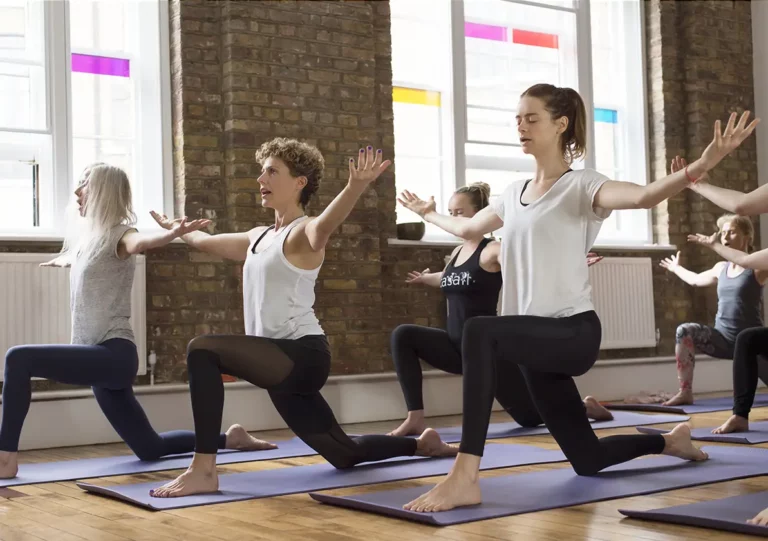When my mind is so active and fidgety that I cannot meditate or pranayama just adds extra irritation, restorative yoga is my go to practice.
Simply by placing your body in certain positions, you can slow the heartrate, breathe deeper and allow the parasympathetic nervous system (rest and digest) to become dominant.
We can also activate the sympathetic nervous system when we need more energy. For example, take a look at my NHS Yoga for Mental Health client in the picture above – her first full inversion!
I have trained with Dr Roger Cole, Judith Lasater and have developed some techniques of my own over the years. Restorative yoga has been a vital tool for me in rehabilitating my chronic neck condition and the stress that came with it.
James has trained in hatha, kundalini, scaravelli, hot and restorative yoga, and has developed an intelligent and considered approach, able to deconstruct classical postures to adapt them to individual needs. He has spent many years working at leading Yyga centres, gyms, in the corporate field and with people suffering with mental health conditions, addictions and stress.
James approach is inspired by his own journey overcoming a chronic spinal condition after years of working in a city-based job. From this, he has experienced a true understanding of the transformational qualities of a regular yoga practice. James has trained with some of the world’s leading authorities in yoga, structural integration, sports massage and myofascial release with, over 10 years of experience working as a yoga teacher and therapist.









